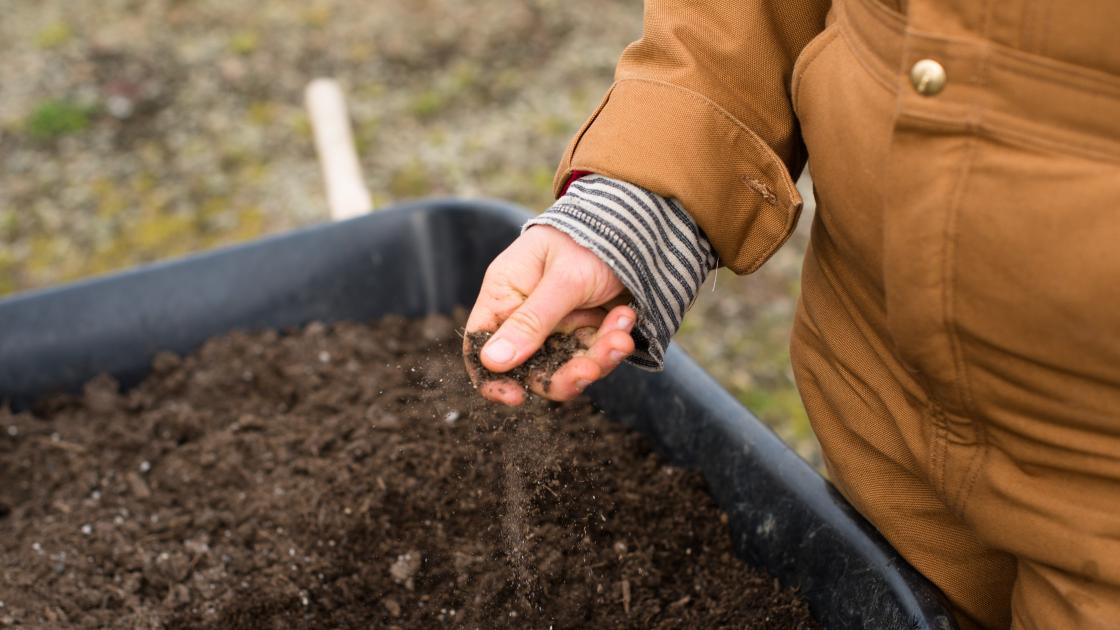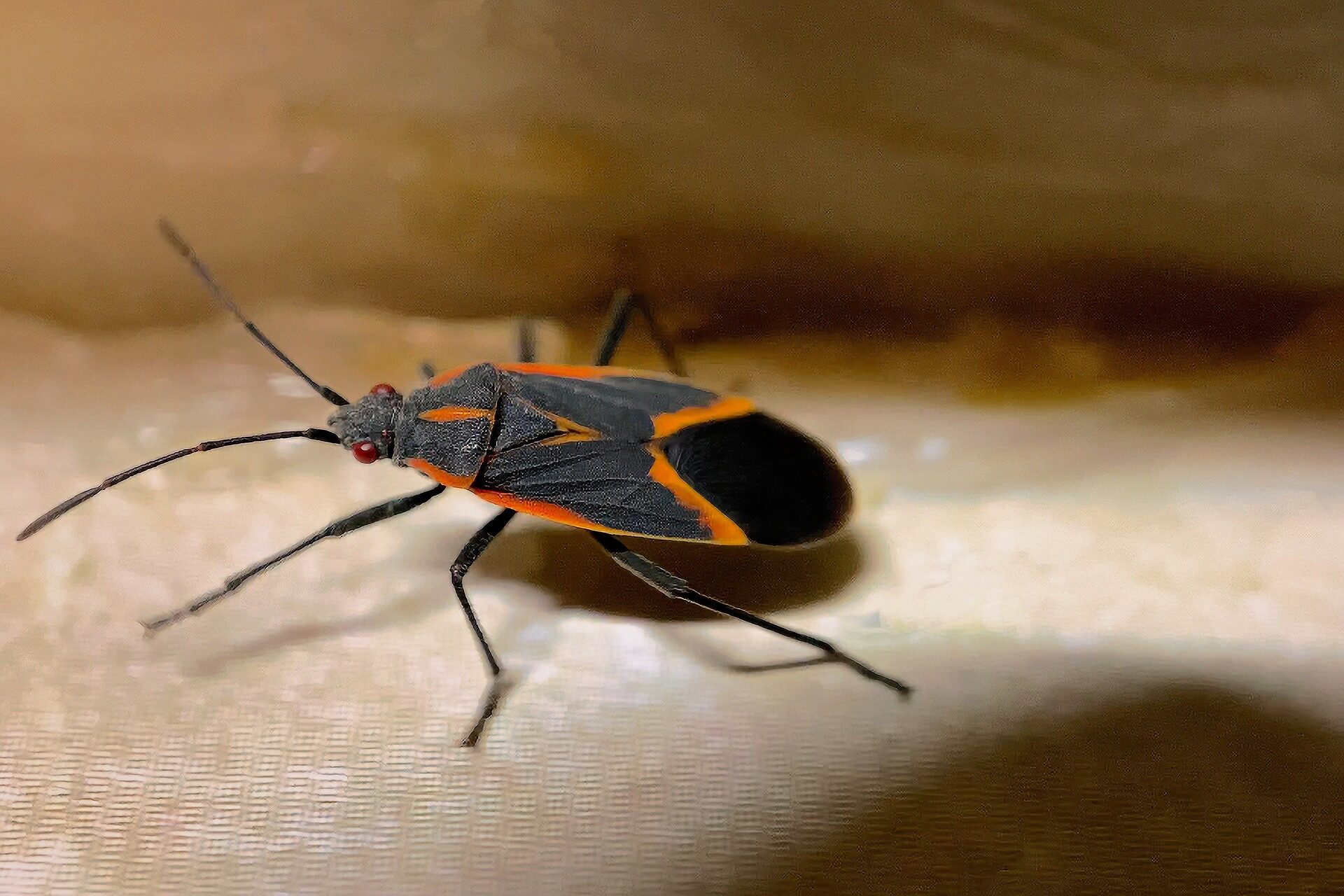Does Composting Attract Bugs?
Composting can attract bugs. However, proper management and a balanced compost pile can reduce their presence.
Composting is the process of breaking down organic materials into nutrient-rich soil amendment. It is an eco-friendly approach that contributes to sustainable living. While composting provides numerous benefits to plants and the environment, it can attract bugs. Bugs are drawn to the decaying matter in the compost pile and can make their homes in it.
This can be concerning for some people who want to compost but worry about pests in their backyard. However, with proper management and a balanced compost pile, it is possible to minimize the presence of bugs. In this article, we will look at ways to compost without attracting bugs.

Credit: www.siumed.org
Myth: Composting Attracts Flies
Composting has become an increasingly popular way to reduce waste as well as provide nutrient-rich soil for gardening. However, many people are hesitant to start composting due to the misconception that composting attracts flies. In reality, flies are not attracted to compost itself but rather to rotting food scraps that are not properly covered or buried in the compost pile.
The Truth Behind The Myth
The reason behind this myth is that flies are attracted to the smell of rotting food. When food scraps such as fruits, vegetables, and coffee grounds are left out in the open, flies will quickly swarm and lay their eggs on the exposed food.
However, if these same food scraps are properly buried within the compost pile, they will decompose and turn into nutrient-rich soil which will not be attractive to flies.
Tips To Prevent Flies In Your Compost Pile
Here are some tips to ensure that your compost pile is not attracting flies:
- Cover food scraps with a layer of browns such as leaves or shredded newspaper, ensuring that the scraps are completely covered.
- Bury food scraps at least 6-8 inches deep within the compost pile, making sure to mix them with other compost materials such as grass clippings and wood chips.
- Use a compost bin with a tight-fitting lid to prevent flies from accessing the food scraps.
- Avoid adding meat, dairy or fatty foods to your compost pile, as these items are more attractive to flies.
- Place your compost bin in an area that is not directly in the sun and keep it moist but not damp.
By following these simple tips, you can ensure that your compost pile remains fly-free and continues to produce nutrient-rich soil for all your gardening needs.
Fact: Composting Is Beneficial For Beneficial Insects
Composting is an eco-friendly way of disposing of organic waste and putting nutrients back into the soil. However, one concern that often arises is whether composting attracts bugs. In this section, we will dive into this topic and explore the role compost plays in attracting beneficial insects.
Explain How Beneficial Insects Such As Bees, Butterflies, And Ladybugs Are Attracted To The Flowers And Plants That Can Grow From Compost
Composting can produce healthy and robust plants that are attractive to a variety of beneficial insects such as bees, butterflies, and ladybugs. These insects are essential to the environment as they play a crucial role in pollination and also help control pests that can damage crops and flowers.
Discuss How These Insects Play A Crucial Role In Pollination And Natural Pest Control
Bees are known to be the most active pollinators, and their populations have been in decline due to various factors. However, if you create a compost pile that fosters an environment for bees, this can help support their population growth.
Butterflies and ladybugs are also helpful pollinators, and they also prey on pests, making them an asset to any garden.
Provide Tips For Creating A Compost Pile That Is Welcoming For Beneficial Insects
There are various ways to create a compost pile that is welcoming for beneficial insects. Here are some tips:
- Use a variety of materials in your compost pile. This can include garden debris, fruit and vegetable scraps, and even coffee grounds.
- Create a pile that is at least 3 feet high and 3 feet wide, and make sure it is situated in a warm and partially shaded area.
- Add a layer of dirt over the compost pile to create a habitat for beneficial insects to thrive.
- Avoid using chemicals in your compost pile, as this can harm both the beneficial insects and the plants that grow from the compost.
Creating a compost pile that attracts beneficial insects can be an excellent way to support the environment and encourage healthy plant growth. By following the tips we’ve provided, you can create a thriving compost pile that will attract a variety of helpful insects.
Myth: Composting Can Attract Rodents
Composting is a great way to enrich the soil with organic matter, reduce waste, and produce natural fertilizers for your plants and garden. However, some people refrain from composting due to the common misconception that compost piles can attract rodents and other pests.
But is this true, or just another myth?
The Truth About Rodents And Composting
Contrary to popular belief, composting itself does not attract rodents. In fact, rodents are attracted to loose food scraps and living conditions with little or no cover. Compost piles may contain food scraps, but they are generally covered and buried within the pile to avoid attracting pests and insects.
Tips For Preventing Rodents In Compost Pile
If you want to start composting but are worried about attracting rodents, there are several ways to keep them at bay:
- Cover food scraps with a layer of soil or other organic matter to prevent exposure and keep pests from accessing them.
- Bury food scraps deep into the pile and cover them with additional layers of organic matter.
- Avoid adding meat, dairy products, or fats to the compost pile, as they can attract rodents and other pests.
- Use a rodent-proof composting bin if you live in an area with a high population of rodents.
- Regularly turn and mix the compost pile to aerate it and create a less favorable environment for pests to live in.
By taking these simple precautions, you can minimize the risk of pests and rodents in your compost pile, while still enjoying the benefits of sustainable, eco-friendly gardening.
Fact: Composting Reduces Garbage And Landfill Waste
Composting is the process of breaking down organic waste materials, such as food scraps and yard waste, into nutrient-rich soil. It is a simple and effective way to manage waste while also creating a sustainable solution for gardening. Here’s a closer look at the environmental benefits of composting and how it helps to reduce garbage and landfill waste:
Discuss The Environmental Benefits Of Composting And Reducing The Amount Of Organic Waste That Goes To Landfills
Composting is an eco-friendly way to manage organic waste and improve the soil fertility. Here are some of the ways in which composting benefits the environment:
- Reduces waste in landfills, which is beneficial because landfills contribute to the production of greenhouse gases that contribute to climate change.
- Conserves landfill space that is scarce in urban areas.
- Reduces the amount of methane gas that is produced in landfills which is known as a potent greenhouse gas.
- Reduces soil erosion and mitigates soil contamination by reducing the need for synthetic fertilizers and pesticides use.
Provide Statistics On The Amount Of Waste That Can Be Diverted From Landfills Through Composting
According to the united states environmental protection agency, about 30% of the united states’ annual solid waste is organic material that could be composted. Here are some more statistics on composting and waste reduction:
- Composting can reduce food waste by up to 90%, and yard waste by up to 50%.
- In the united states, we throw away over 36 million tons of food each year.
- The average american household disposes of nearly 25% of the food purchased, which estimates to $165 billion worth of wasted food each year.
Highlight The Impact That Landfill Waste Has On Greenhouse Gas Emissions And Climate Change
Landfills are a significant source of methane gas emissions that contribute to climate change. Methane is 20 times more potent compared to carbon dioxide in contributing to climate change. Here are the key points to take away:
- Landfills are the third-largest source of methane gas in the united states.
- Methane gas is produced from decomposing organic materials in landfills.
- Landfills contribute 12% of all methane generated in the united states.
Composting is an effective way to reduce landfill waste, conserve landfill space, and reduce greenhouse gas emissions that contribute to climate change. Composting is a simple and eco-friendly solution for managing organic waste while creating nutrient-rich soil, promoting environmental health and a sustainable future.
Frequently Asked Questions On Does Composting Attract Bugs
What Kind Of Bugs Are Attracted To Composting?
Bugs that are attracted to composting include beetles, ants, flies, and roaches. These bugs are attracted to the rich, moist environment and the decaying organic matter.
Are Bugs In Compost Harmful To Plants?
Most bugs that are attracted to composting are not harmful to plants and can actually help with the decomposition process. However, some beetles and larvae can be harmful if they feed on the roots of plants.
How Can You Prevent Bugs From Being Attracted To Composting?
To prevent bugs from being attracted to composting, make sure your compost pile is balanced, with equal amounts of green and brown materials. Also, try to keep the pile moist but not too wet, and turn it frequently to add oxygen and prevent smells.
Can You Use Insecticides In Your Compost Pile?
It is not recommended to use insecticides in your compost pile, as they can kill off the beneficial bacteria that are necessary for the decomposition process. Instead, focus on creating a balanced pile that will naturally discourage bugs.
How Do You Know If Bugs In Your Compost Pile Are Beneficial Or Harmful?
In general, bugs that are actively breaking down the organic matter are beneficial to the composting process. However, if you notice bugs that are damaging plants or seem to be taking over the pile, it may be time to take action.
Conclusion
Composting is a great way to reduce waste and produce nutrient-rich soil for your plants. However, many people are concerned about whether composting attracts bugs. The truth is that composting can attract bugs, but this is not necessarily a bad thing.
Many bugs, such as worms and insects, are important for breaking down organic matter and creating healthy soil. Additionally, some bugs may help control pest populations in the garden, reducing the need for harmful pesticides. There are steps you can take to minimize the number of unwanted bugs in your compost, such as maintaining the proper balance of carbon and nitrogen, regularly turning the compost, and keeping it moist but not too wet.
Overall, composting is a sustainable and beneficial practice for both your garden and the environment. So, don’t let the fear of bugs deter you from composting!

A Z M Mahadi Hassan is an ardent advocate for sustainable living, spearheading the eco-conscious blog ecolifely.com. With roots in environmental science, he blend personal experience with expert insights, offering practical advice on eco-friendly practices. Growing up close to nature, A Z M Mahadi Hassan cultivated a deep respect for the environment, shaping his mission to make green living accessible. The blog covers topics from zero-waste lifestyles to organic gardening, inspiring readers to embrace minimalism and sustainability. Apart from blogging, he engage in community environmental initiatives, embodying the ethos of his writings in daily life.

